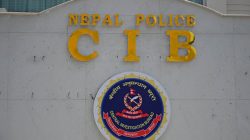US Secretary of State Marco Rubio’s Visit to Malaysia Marks Strategic Shift in Indo-Pacific Engagement
US Secretary of State Marco Rubio is set to embark on a significant trip to Malaysia, marking his first official visit to the Indo-Pacific region. The journey, scheduled from July 8 to 12, will see him participate in high-level discussions with leaders from the Association of Southeast Asian Nations (ASEAN) in Kuala Lumpur. This move underscores the United States’ growing focus on strengthening its alliances in Southeast Asia amid evolving global dynamics.
The visit comes at a time when regional leaders are increasingly concerned about the shifting geopolitical landscape. With China’s expanding influence and the ongoing impact of former President Donald Trump’s trade policies, there is a pressing need for reassurance from Washington. Rubio’s presence in Malaysia is expected to signal a renewed commitment from the US to the Indo-Pacific, emphasizing long-term partnerships over short-term economic gains.
During the ASEAN meeting, Rubio is anticipated to address key concerns raised by regional allies. Many Southeast Asian nations have expressed doubts about the alignment of Trump’s tariff-focused approach with broader diplomatic and security objectives. By engaging directly with ASEAN ministers, Rubio aims to reaffirm the US’s dedication to the region’s stability and prosperity.
In addition to the ASEAN engagement, Rubio has already taken steps to bolster cooperation with other key partners. Last week, he met with officials from Australia, Japan, and India to announce a collaborative initiative focused on critical mineral supplies—a sector largely dominated by China. This effort highlights the US’s strategic interest in diversifying supply chains and reducing dependency on a single nation.
Rubio also highlighted progress in trade relations with Vietnam, an ASEAN member, and hinted at potential agreements with other regional partners. These developments reflect a broader strategy to strengthen economic ties while addressing security concerns.
Despite these efforts, some analysts have noted that Rubio has yet to visit Japan and South Korea since taking office in January. Both countries are considered crucial allies in the US’s strategy to counter China’s rising influence in Northeast Asia. His absence has sparked questions about the depth of US engagement in this vital region.
Experts believe that the Malaysia trip could help restore confidence among US allies. Greg Poling of the Center for Strategic and International Studies remarked, “There’s a real hunger for reassurance.” He added that Rubio’s visit may serve as a foundation for deeper security and economic collaboration in Southeast Asia.
The upcoming meetings in Malaysia are seen as a critical step in reinforcing the US’s role as a reliable partner in the Indo-Pacific. As global tensions continue to evolve, the ability of the US to maintain strong alliances will be essential in shaping the region’s future. With a focus on both economic cooperation and strategic security, Rubio’s visit represents a pivotal moment in US foreign policy.






